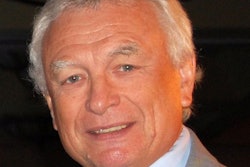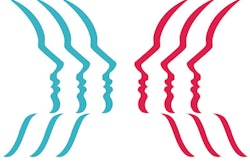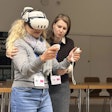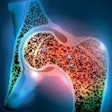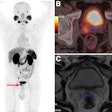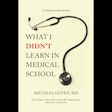
Last week was a bad one for opponents of breast cancer screening. On Saturday, prominent screening opponent Dr. Peter Gøtzsche was booted from the governing board of the Cochrane (formerly known as the Cochrane Collaboration) just days after screening skeptic Dr. H. Gilbert Welch resigned from Dartmouth College over plagiarism allegations.
Gøtzsche was the lead author of a meta-analysis published in 2000 that dismissed the findings of randomized controlled trials in favor of screening mammography, and over the years he has published a stream of articles and books attacking breast screening as a harmful procedure that should be terminated. For his part, Welch was the lead author on a 2016 study about overdiagnosis in screening mammography that was published in the New England Journal of Medicine and that cast doubt on the effectiveness of organized screening programs.
But controversy has swirled around both researchers in recent months. In Gøtzsche's case, he was released September 15 by the Cochrane Governing Board at its Cochrane Colloquium meeting in Edinburgh, Scotland. Gøtzsche is head of the Nordic Cochrane Centre in Denmark and was elected to the international Cochrane group's board in 2017. But recently, he has been dueling with the international Cochrane group over the methodology used in a study on HPV vaccines that was published in May 2018 by researchers from Cochrane Review, which performs periodic reviews of major healthcare public policy issues.
Cochrane Review's meta-analysis found that HPV vaccines were effective in preventing cervical cancer, but Gøtzsche objected to the review's methodology, in particular its exclusion of research studies that might have resulted in a more critical perspective on HPV vaccines. He accused the Cochrane Review researchers of bias, a charge that was rejected by editors of Cochrane Review.
In announcing Gøtzsche's termination, the Cochrane Governing Board announced that it had also terminated four board members in addition to Gøtzsche -- a sign that Gøtzsche still wields considerable support within the international Cochrane body. He delivered a parting shot with a 14 September letter accusing the board of creating a "moral governing crisis" caused by a "top-down authoritarian culture" and an "increasing commercial business model" that promotes favorable reviews.
Welch's resignation
Meanwhile across the Atlantic, Welch's resignation from Dartmouth College brought to a close a controversy that began in August, when revelations came to light about a university investigation that found that he plagiarized material from colleagues for his 2016 NEJM study.
Two former Dartmouth researchers had accused Welch of plagiarizing their ideas on breast cancer screening's contribution to overdiagnosis, in particular their method of calculating overdiagnosis rates by using measurements of tumor size over time. After an investigation, Dartmouth sided with the accusers and asked NEJM to retract the study; thus far, it has refused to do so.
Welch has consistently claimed that the ideas behind the NEJM paper were his and were the culmination of his 20 years of research into early breast cancer detection. But he ultimately decided to resign his position with Dartmouth, according to a report published on 13 September by STAT. He has served at the institution in a variety of capacities since 1990.
"I am saddened to say that I am resigning from Dartmouth," STAT reported from an email Welch wrote to colleagues. "I feel that I can no longer participate in the research misconduct process against me -- as I fear my participation only serves to validate it."
At least one mammography proponent who has dueled with both Gøtzsche and Welch over the years, Dr. Daniel Kopans, sees the developments as validation for those who have questioned the science behind their claims against mammography screening.
"Experts in breast cancer screening have been complaining about the major scientific violations in the analyses of both Gøtzsche and Welch for years, but we have been dismissed as having conflicts of interest," he told AuntMinnie.com in an email. "Perhaps this will cause an improvement in peer review that has allowed scientifically unsupportable claims of massive overdiagnosis to be published, and perhaps this will cause the media to stop dismissing experts."




